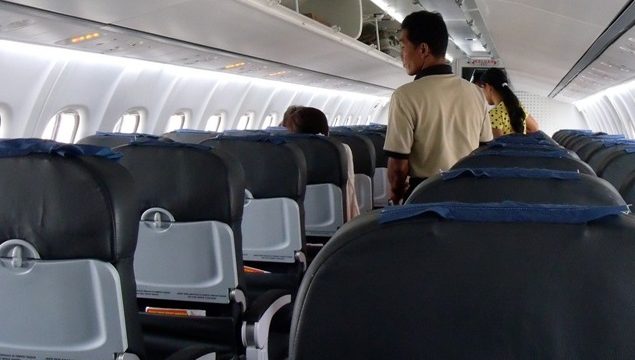Your Tax Dollars Used To Subsidized Nearly Empty Airline Flights Right Here In North Dakota

Last night Valley News Live covered the issue as well, including reports on the program here in North Dakota.
Two airports here in North Dakota big big-time dollars. Here are the numbers according to the latest EAS deals signed for Devils Lake and Jamestown a little over a year ago:
Jamestown
Total Subsidy: $3,126,564 for April 1st, 2014 through June 30th, 2016
Service: 11 round trips to Denver per week using a 50-seat regional jet
Per-trip subsidy: $5,578
Weekly subsidy: $61,358
Devils Lake
Total Subsidy: $3,224,917
Service: 11 round trips to Denver per week using a 50-seat regional jet
Per-trip subsidy: $5,754
Weekly subsidy: $63,294
That’s a lot of people, and the number of people served is actually pretty tiny.
The DOT estimates that SkyWest will make 2,242 trips to both cities per year (11 flights per week x 52 weeks x 0.98 completion rate), and SkyWest’s proposal estimated 16,000 passengers would be served between the two cities. That works out to about 7 people per flight. The reality will probably be less than that. The average number of passengers on flights out of Devils Lake and Jamestown, from 2006 to 2011, was 6.24 and 3.83 respectively, and while boardings across North Dakota have been growing, things have been stagnant-to-shrinking at these two EAS airports.
According to SkyWest’s proposal, they calculate a $391 per passenger Essential Air federal subsidy for Jamestown and a $403 per passenger subsidy for Devils Lake. In truth, per historical per-flight passenger numbers, the amounts will probably work out to far more than that. Over $800 in subsidies per passenger based on historical boarding numbers.
Keep in mind, too, that the DOT contract requires SkyWest to use a 50-seat regional jet for an estimated 7 passengers per flight, and probably less. Talk about wasteful.




